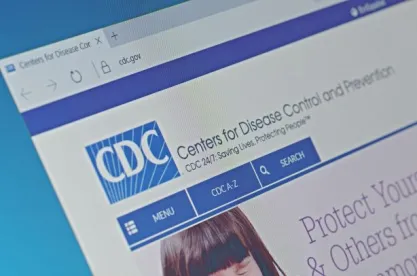Effective 29 May 2021, most of the Commonwealth of Massachusetts’ remaining COVID-19 restrictions will be lifted and its face-covering order will be rescinded and replaced with a face-covering advisory consistent with the Centers for Disease Control and Prevention’s (CDC) updated guidance. Importantly, this means that there will be no capacity limitations, social distancing measures will no longer be required, and all industries will be permitted to open. As discussed below, the only state-mandated restrictions that will remain in place after 29 May 2021 are those relating to masks in limited indoor settings and those relating to certain staffing and operations requirements for recreational camps. In addition, because of the progress made to reach the Commonwealth’s projected vaccination goal, the existing state of emergency will end on 15 June 2021. Governor Baker’s press release announcing the Commonwealth’s lifting of the COVID-19 restrictions and progression into the next stage of reopening is available here, the Massachusetts Department of Public Health’s (DPH) Advisory Regarding Face Coverings and Cloth Masks (the DPH Advisory) is available here, and the CDC’s face covering guidance is available here.
The City of Boston has announced that it will follow the Commonwealth’s reopening plan, including changes to the mask mandate. However, as of the date of this alert, other cities in the Commonwealth, including Cambridge and Somerville, have not made any changes to their indoor mask mandates. Up-to-date information about the City of Cambridge’s and City of Somerville’s reopening plans is available here (Cambridge) and here (Somerville).
FACE COVERINGS
On 29 May 2021, the DPH Advisory will replace Governor Baker’s COVID Order #67 regarding face coverings. Pursuant to the advisory, fully vaccinated individuals are no longer required to wear masks or social distance in most settings, though individuals who are not fully vaccinated should continue to wear masks to help prevent them from spreading COVID-19. Until further notice, masks remain mandatory for both vaccinated and unvaccinated individuals in the following places:
-
Public transportation systems (e.g., the MBTA);
-
Private transportation systems (e.g., rideshare services);
-
K-12 public schools, collaboratives, approved special education schools, and as otherwise required by the Department of Elementary and Secondary Education;
-
Childcare programs;
-
Health care facilities and provider offices;
-
Congregate care settings;
-
Health care and rehabilitative day service and programs; and
-
Other places in which vulnerable populations are housed.
Further, masks may still be required by local orders or pursuant to individual business or workplace guidance. Thus, absent local orders, employers or storeowners retain the discretion as to whether to continue to require employees and customers to wear a mask.
Finally, children five years of age and younger and persons for whom a face mask creates a health risk or safety issue continue to be exempt from any mask mandates.
OTHER CHANGES
In addition to the above, as of 18 May 2021, masks will no longer be required for youth athletes 18 years old and younger during outdoor sporting events or for outdoor activities in childcare programs or in K-12 schools (e.g., recess) and objects can be shared within childcare and K-12 classrooms. Further, starting on 29 May 2021, all restrictions on youth and amateur sports will be lifted and summer camps will not be required to mandate masks for outdoor activities. However, recreational camps must still follow certain mandates relating to staffing and operations, including ensuring adequate staffing to supervise sick campers and to accommodate cleaning requirements and providing campers with orientation regarding COVID-19 protocols and symptoms (available here).
WHAT DOES THIS MEAN FOR EMPLOYERS?
The CDC’s guidance for vaccinated individuals and the Commonwealth’s move into the final stage of reopening are undoubtedly positive developments as Massachusetts begins to emerge from the COVID-19 pandemic. However, as discussed in more detail in K&L Gates’ alert on returning to a workplace that is mask-free for fully vaccinated employees (available here), employers should undertake a careful risk assessment before making any drastic changes to their workplace protocols. For example, although the Occupational Safety and Health Administration announced its endorsement of the CDC’s new guidelines, it has not formally revised its existing guidelines and recommendations relating to workplace safety and COVID-19, which include mandating the use of masks in the workplace. In addition, although Governor Baker will lift most restrictions as of 29 May, he is encouraging all industries to continue to follow CDC guidance for cleaning and hygiene protocols, which includes enhanced cleaning schedules and ensuring access to hand sanitizer and handwashing facilities. Finally, given that no vaccine is 100 percent effective, employers should continue to screen their employees for COVID-19 symptoms and exposure and should follow applicable CDC guidance for quarantine and self-isolation of employees who experience COVID-19 symptoms, test positive for COVID-19, or are exposed to COVID-19.
Betsy Byra also contributed to this article.





 />i
/>i

